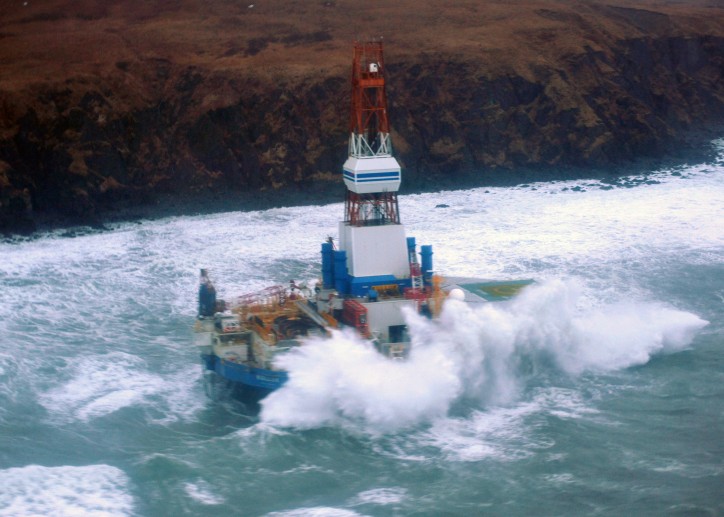US National Transportation Safety Board (NTSB) has released its official report into the grounding of the rig Kulluk in Alaska three years ago.
According to the verdict, the most to blame is Shell because of its inadequate assessment of the risk for the Kulluk's planned tow.
In the heavy weather of Dec 31, 2012, and having being towed by the supply vessel Aiviq from Unalaska to Seattle, the rig ran aground near Ocean Bay. At the time of the accident, the Kulluk was carrying nearly 143,000 gallons of low-sulfur diesel oil and 12,000 gallons of other petroleum products.

Photo: Wikipedia
The 14-page report of NTSB says that the accident came as a result of shortcomings in the design of the plan. The towing equipment had had only one external review plus there were no requirement for the USCG to monitor the whole operation.
“The series of failures that led to this accident began when Shell failed to fully address the risks associated with a late December tow in Alaskan waters, and ended with the grounding of the Kulluk,” the report says.
“Although multiple parties were involved in the review and approval of the tow plan, the ultimate decision to approve and implement the tow was Shell’s.”
The report comes amid the plans of Shell to return to Arctic offshore exploration for the first time since the incident with Kulluk. Currently the oil-exploration fleet of Shell is in Seattle awaiting to head north and drill with two rigs in the Chukchi Sea.